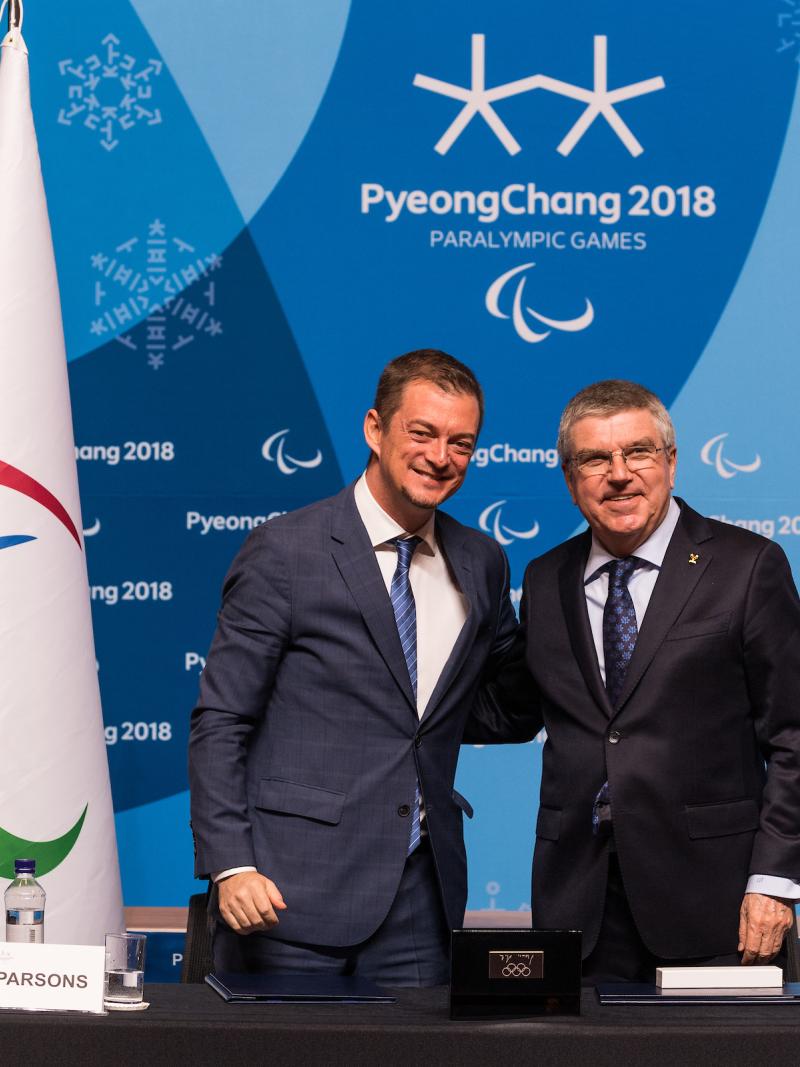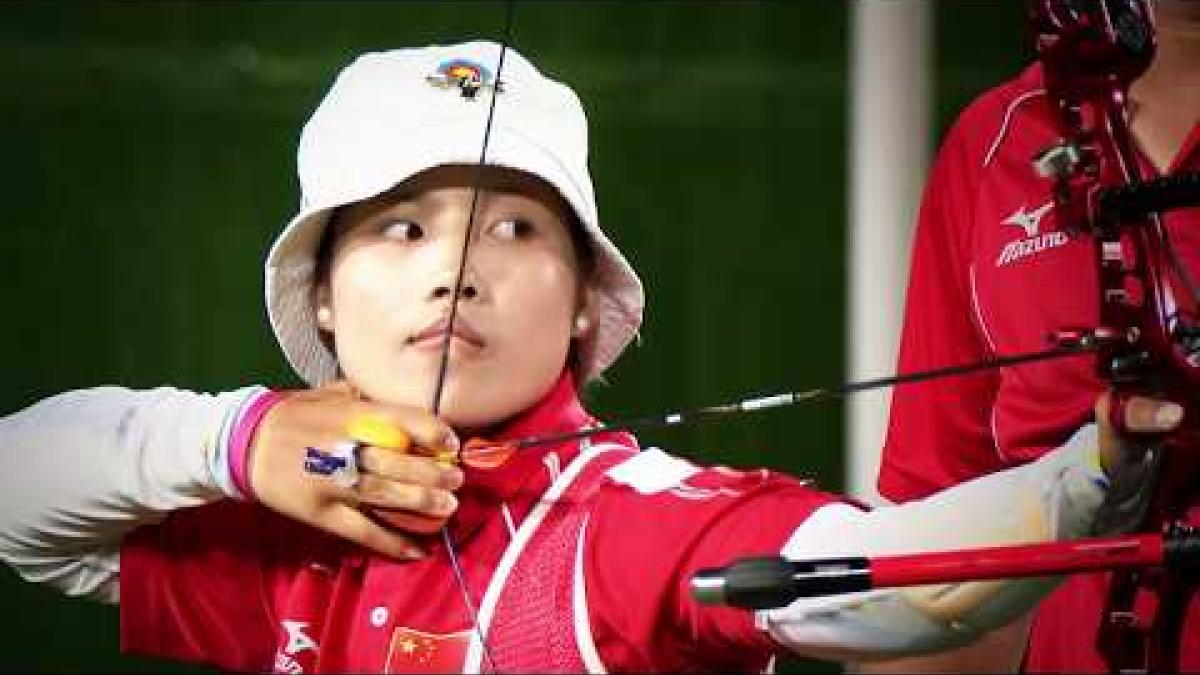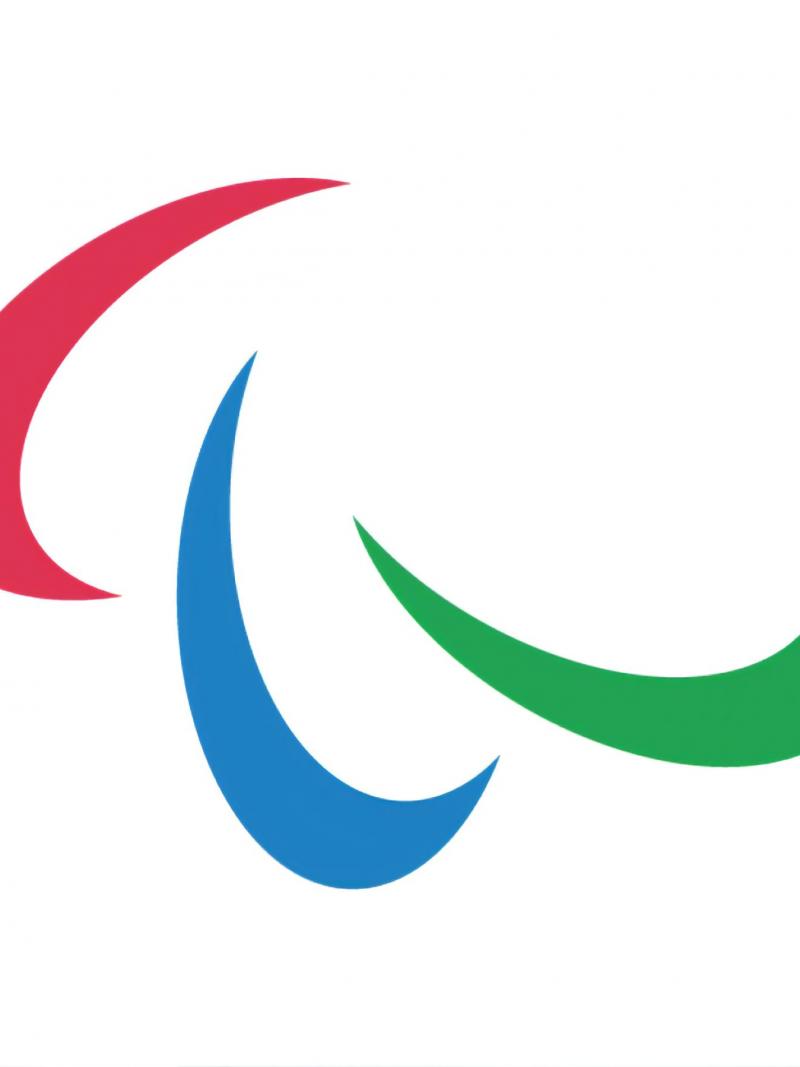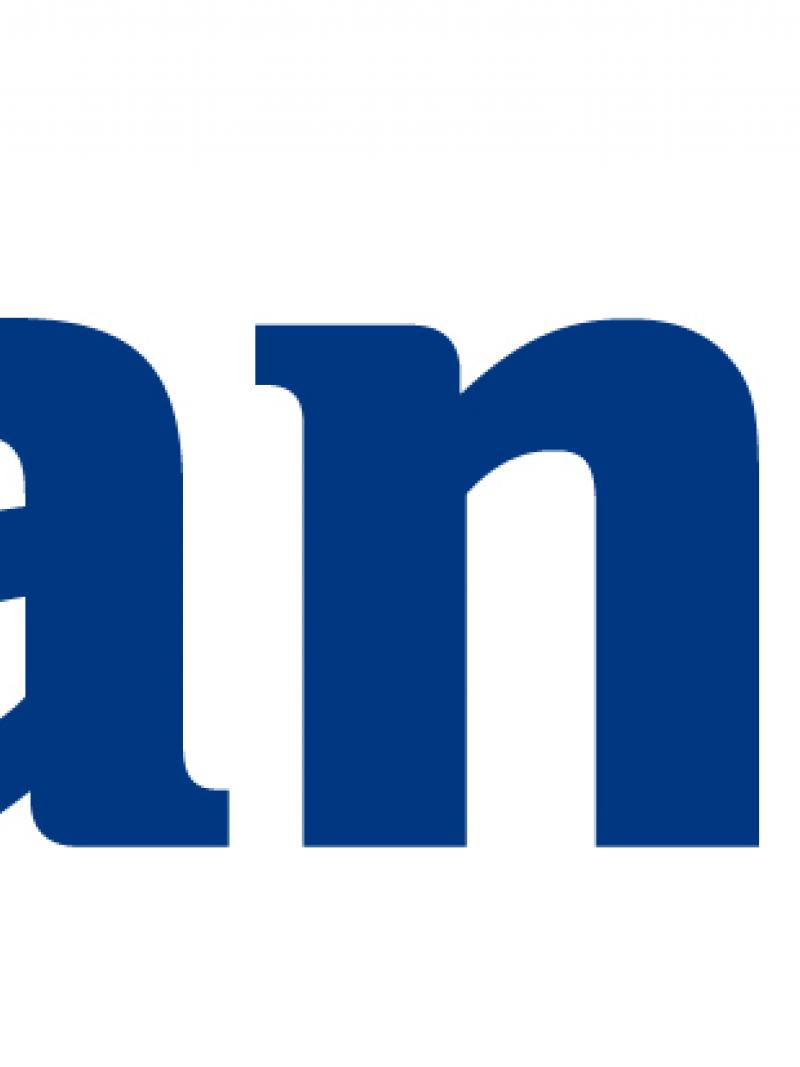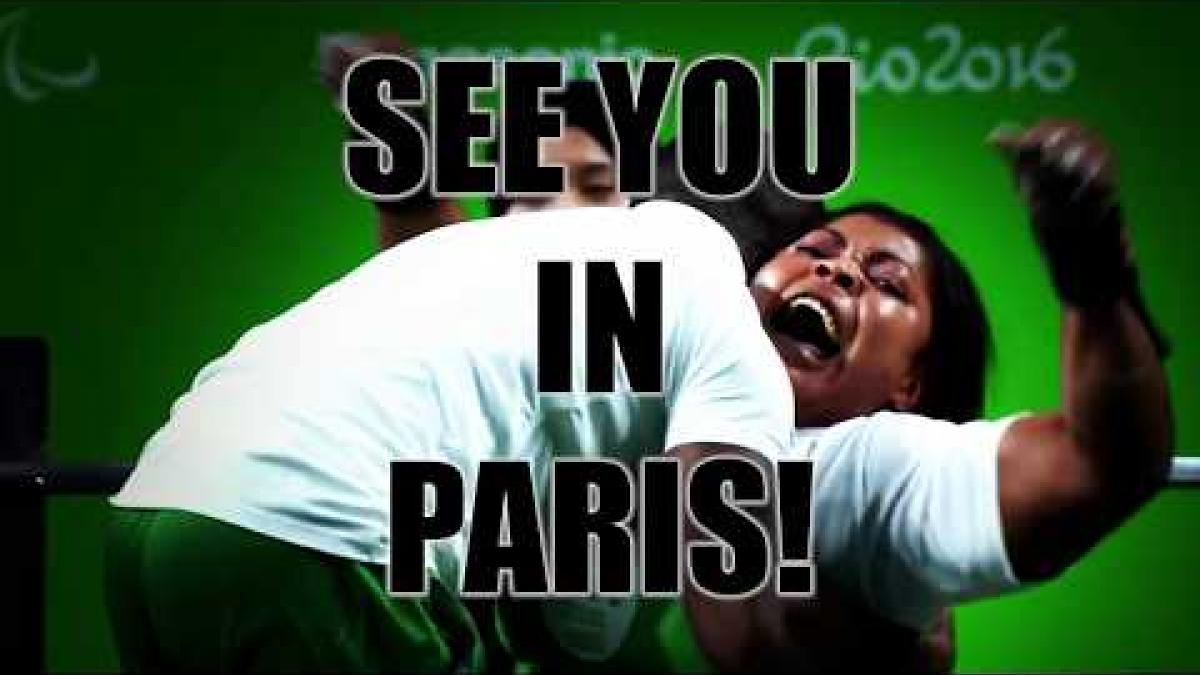Paris 2024: Paralympic Week returns!
More than 1,000 education projects take place in France 05 Feb 2019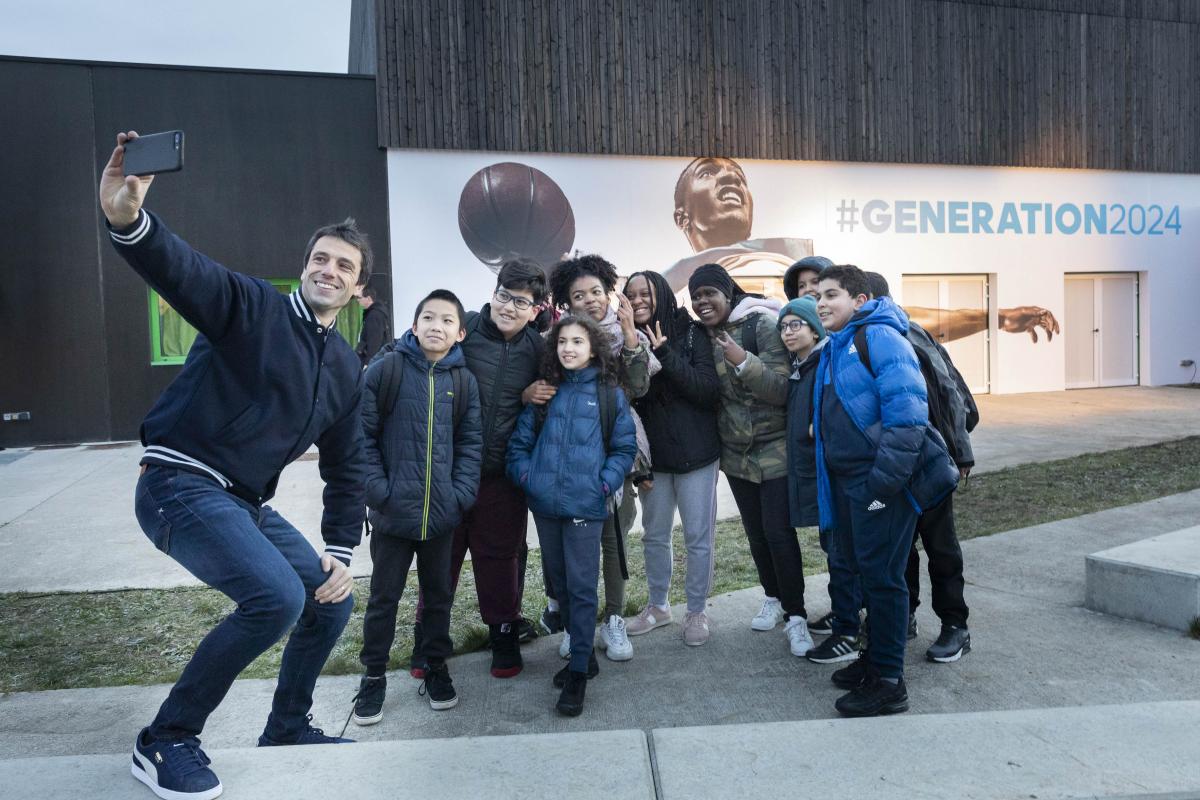
Paris 2024 President Tony Estanguet (L) takes a selfie with schoolchildren at the third Olympic and Paralympic Week
“Every year it shines the spotlight on the positive impact that sport can have, beyond the staging of the Games, by using it and its benefits and values as a driving force for change. We believe in the power of sport."
Olympic and Paralympic Week has returned for the third time at schools and universities across France, as the countdown to the 2024 Games continues. The third edition was launched at a secondary school in northern Paris on Monday (5 February).
Running until 9 February, Olympic and Paralympic Week is taking place in educational establishments across France, from nursery schools to universities. Supported by the French Ministry of Education and the sports movement, it is a key event in Paris 2024’s educational programme, which seeks to promote education through sport and put civic and sporting values at the heart of learning.
Dora Maar Secondary School was chosen for the launch because of its close proximity to the future Paris 2024 Athletes’ Village, and was attended by notable names including Paris 2024 President Tony Estanguet and Sophie Cluzel, French State Secretary in charge of Persons with Disabilities.
Daniel Narcisse (handball), Sarah Ourahmoune (boxing), Thierry Omeyer (handball), Arnaud Assoumani (Para athletics), Astrid Guyart (fencing) and Charles Rozoy (Para swimming) were among the athletes taking part in French, History, Geography and English lessons in which sport was used as an educational tool.
After speaking to students about the values of sport, particularly diversity and the need to be more active – the two core themes of the 2019 SOP – the athletes took part in sporting activities involving handball, table tennis, boxing and football, joined by Aminata Diallo (football), Katarrzyna Kiedrzynek (football) and Viknesh Anbarasan (blind football).
Representing France’s talented “Generation 2024” of athletes were 14-year-old up-and-coming table tennis player Prithika Pavade, a registered player in the Saint-Denis area, and 17-year-old boxer Tallya Brillaux, a silver medallist in the women’s 69-75kg category at the 2018 Buenos Aires Youth Olympic Games.
After sharing their experiences as young athletes with the students, they respectively pitted their skills against Olympic medallists Jean-Philippe Gatien and Sarah Ourahmoune.
“Olympic and Paralympic Week is a key annual event in Paris 2024’s educational programme,” explained Paris 2024 President Tony Estanguet.
“Every year it shines the spotlight on the positive impact that sport can have, beyond the staging of the Games, by using it and its benefits and values as a driving force for change. We believe in the power of sport.
“We believe sport has a contribution to make to a more active, more inclusive and outward-looking society. School is a vital place for passing on these values and for promoting positive behaviour in children from a very young age.”
What is Olympic and Paralympic Week?
Olympic and Paralympic Week is an annual initiative designed to promote sport among young people and rally the educational community around civic and sporting values. Since 2017, it has been part of the national Ministry of Education syllabus, which was set up during the bid phase. SOP is being rolled out to every school, educational establishment and higher education institution in mainland France and its overseas territories at all age levels, from nursery school through to university.
It is a week in which school time is split between general education, with sport being used for educational purposes, and physical and sporting activities. SOP aims to:
- Raise the students’ awareness about the values of Olympism and Paralympism
- Encourage youngsters to take up sport and become more physically active
- Use sport as an educational and recreational tool
- Introduce students to Olympic and Paralympic disciplines in collaboration with the sports movement
- Change the way youngsters view disability
- Encourage youngsters to take up voluntary activities and be civic-minded





